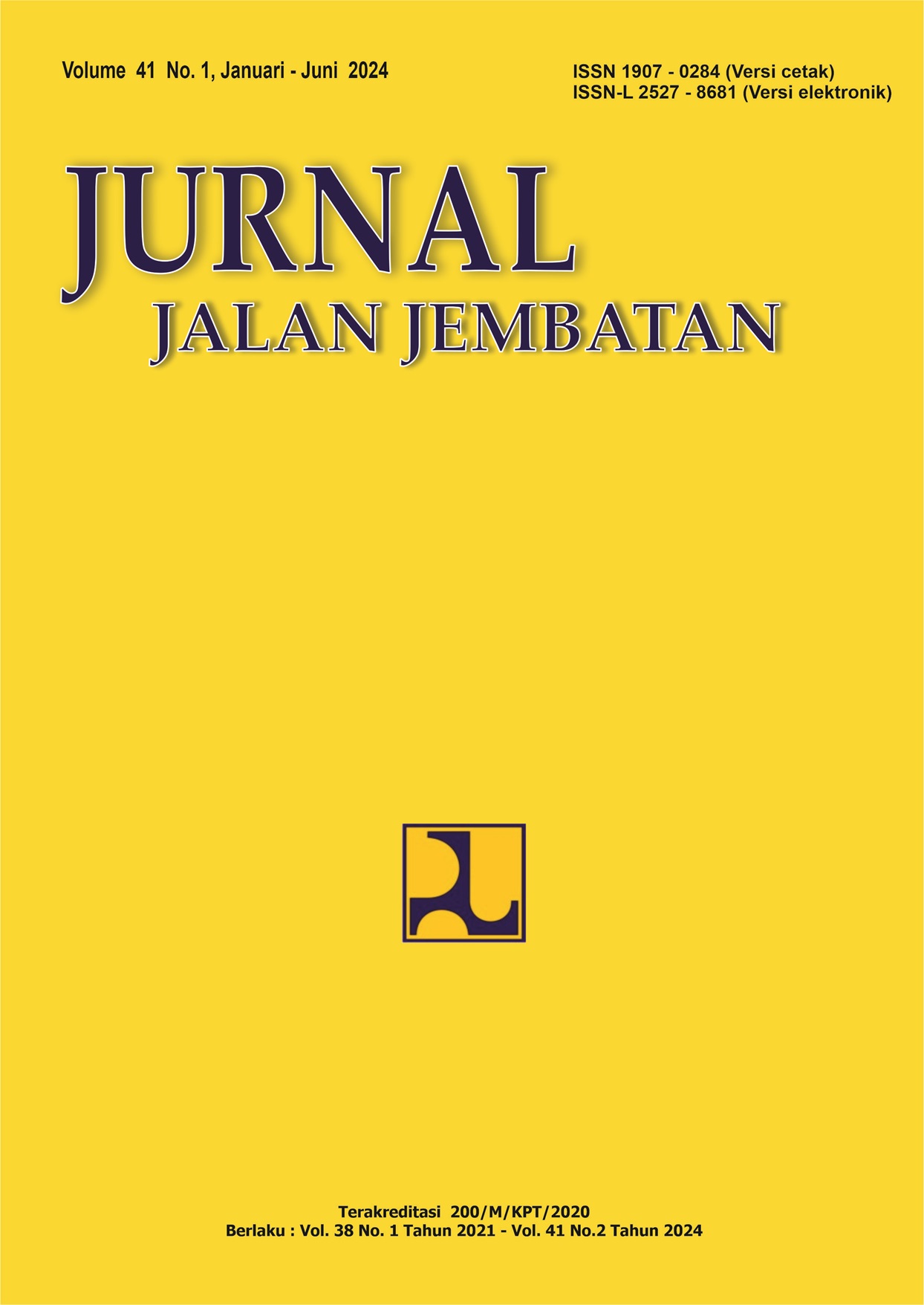ASPHALT CONCRETE-WEARING COURSE) USING LYCAL RESIN IN VIEW FROM MARSHALL PARAMETERS
Main Article Content
Abstract
Road damage is a common problem encountered by road users. As the volume of vehicles increases, the roads become more easily damaged. In addition, the increasing number of cars with loads exceeding the planned load capacity of the road can also shorten the strength life of the road. The AC-WC layer has the potential to be damaged because it often receives direct pressure and friction from the vehicle. The asphalt quality has to be improved to overcome the damage of AC-WC asphalt pavement. Modified asphalt applied to the manufacture of AC-WC can be used to enhance pavement quality. This research aims to investigate the performance of AC-WC with the addition of lycal resin in terms of the Marshall Parameters. The research design begins with preparing and testing the constituent materials used and lycal resin, then making test specimens with optimum bitumen content, then making Marshall test specimens with the addition of lycal resin polymer with respective levels of 0%, 1%, 2%, 3%, and 4%. The results of the Marshall test were compared to the stability, flow, MQ, VIM, VMA, and VFA values. The Marshall's test result complies with the 2018 Bina Marga General Specifications for Road and Bridge Construction Works (Revision 2).
Keywords: lycal resin, Marshall parameters, AC-WC, pavement, asphalt
Article Details
Authors who publish in this journal agree to the following terms:
-
Authors retain copyright and grant the journal the right of first publication with the work simultaneously licensed under a Creative Commons Attribution License, which allows others to share the work with acknowledgment of the work's authorship and initial publication in this journal.
-
Authors may enter into additional contractual arrangements for the non-exclusive distribution of the journal's published version of the work (e.g., post it to an institutional repository or publish it in a book), with acknowledgment of its initial publication in this journal.
-
Authors are permitted and encouraged to post their work online (e.g., in institutional repositories or on their website) as it can lead to productive exchanges, as well as earlier and greater citation of the published work.
Each submitted manuscript must be accompanied by a "Manuscript Originality Statement" and a "Copyright Transfer Statement".

